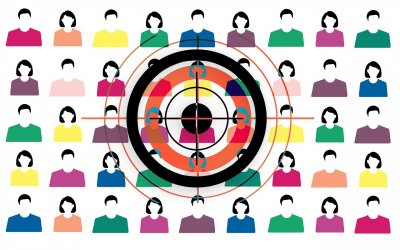The EOS Model® provides a useful foundation for businesses, but it falls short in addressing key aspects of creating an growth. By incorporating additional elements from the Gravitas 7 Attributes of Agile Growth® model, businesses can create a more comprehensive system that promotes growth while maintaining smooth operations. Focusing on Leadership, Strategy, Execution, Customer, Profit, Systems, and Talent, the 7 Attributes of Agile Growth® offer a more encompassing approach to achieving success.

You need to take an extended vacation. No, seriously, you do.
Not only do you need a vacation, but it needs to be at least two weeks, and preferably longer. I have given many CEOs and business leaders this advice over the years, and I believe in it.
Why a minimum of two weeks? Well, you need the first week to unwind and let work “go.” The second week, you truly relax, the tension of work and all its issues leave, but the brain continues to work in the background. After two weeks, I start to see the forest for the trees. The problems that were prominent in my life no longer are as relevant as I thought they were. Turning to my navigate sage power, I turn to my elder self to look back and see what is essential and what I should be focused on rather than that what has my attention.
Now I am unwinding
However, like the old saying, “Physician heal thyself,” I have failed to heed my advice until two weeks ago. I am now sitting in NE Spain, enjoying a quieter time and relaxing with good friends, food, and wine. To ensure my disconnection, I have adopted the following rules:
- Limit email activity to 15 minutes a day.
- Disconnect from Facebook (well, I effectively did that a couple of years ago) and all social media other than LinkedIn.
- Post to LinkedIn, but according to a plan, it takes about 5 minutes a day.
- Avoid the news and television.
- Reading lots but no business books.
- At least 30 minutes of meditation a day.
- Walk at least 5 miles a day.
- Swim as often as possible in the ocean.
These rules are not complicated, but we are so conditioned to remain connected and tuned in that it takes effort to disconnect.
As I relax, I remember that I, like my clients, need to take an extended vacation to recover from the low-level stress of COVID over the last eighteen months. COVID has taken a toll on me, and more than I realized. While I have been active during COVID, I recognized that I have been reactive more than proactive. Now, not only do I want to change this behavior, but I am framing it around what I want to accomplish in Q4 2021 and 2022.
The benefits for you
Sitting in quiet squares or overlooking the ocean, the focus has gotten more precise, the planning more effortless, and many things are just getting crossed off the list or deleted. Also, I am finding that I can better help my clients as my mind declutters.
I am focusing on achieving my long-term goals and not get distracted by what is in front of me. By refocusing, I realized much of what I was doing was not relevant to the long-term goals and thus a distraction.
Now, I can’t say that everything will be done and perfect at the end of this. But I will have more energy, be much better mentally to deal with what lies ahead, and cope with winter.
The benefit for your business.
Taking a minimum of two weeks off provides additional benefits too. You can see how your business operates without you. You will have answers to the following questions:
- Does my leadership team function well in my absence? Are they aligned, and Is there conflict?
- Do my team and company understand its mission, strategy, and purpose?
- Does the organization continue to hit its KPIs for the quarter?
- Do my clients need to deal with me, or can my team handle the clients’ needs?
I have asked many clients how their business would perform if they were unavailable for three to six months, and the answer is usually “Fine.” However, if you cannot go away for two weeks and disconnect, is that true?
If your business cannot operate without you, you don’t have a business; you have a job! To successfully leave your business, you have to make yourself redundant. Only by creating your own redundancy can you sell it, pass it on, or assume a non-executive position. I realize for many business owners, this isn’t easy, as their identity is tied up in their business, but to create a more significant legacy, ensure it operates without you.
So when did you last leave?
As I said earlier, with COVID, I hadn’t taken a vacation in 18+ months. Not only that, but with WFH, I had, like many others, increased the amount of time I was working which typically included at least one full day of every weekend. All of this took a toll.
So when did you last take a “proper” vacation for at least two weeks? Did you disconnect, or were you on calls and emails all the time, putting out fires and saving the company? The stress of the last eighteen months has taken a mental toll on all of us. If you don’t take a break and let yourself recover, you will be ill-prepared for what is ahead. While none of us know what is ahead, we can be sure that labor, supplies, and demand will be unpredictable.
COVID and its effects are not done. I feel like we’re just finished the first half, but there is another half to go, and the opposing team that emerges from the locker room has a new strategy.
If it has been a while since you took an extended vacation, take one now, you will be amazed at how much you and your business will benefit.
Copyright (c) 2021, Marc A. Borrelli
Recent Posts
EOS is just that, an Operating System
What has COVID done to Company Culture?
COVID has affected everyone. However, companies need to examine if they have lived their core values during COVID, how they are reinforcing them in a WFH environment, and especially with the onboarding of new hires.
Profit ≠ Cash Flow
Knowing how much cash you generate is essential for planning for growth. Too many companies don’t know and when they grow they find they are continually running out of cash. Understand your cash flow generation and how to improve it through improvements in your Cash Conversion Cycle and using the Power of One.
What Are Your Critical and Counter Critical Numbers?
The key to achieving long term goals is to define short term goals that lead you there. Focusing those short term goals around a key metric is essential. However, ensure that the metric will not lead other areas astray by having an appropriate counter critical metric act as a counter balance.
Rethinking ‘Family’ Culture in Business: Fostering Performance and Success
Explore the importance of company culture and the potential pitfalls of adopting a “Family” culture in organizations. Learn how to foster a high-performance culture while maintaining key family values and discover success factors for family businesses. Rethink the “Family” culture concept and create a thriving environment for your organization.
Do You Truly Know Your Core Customer?
Knowing the profit of your core customers is key to building a growth model. Many companies have identified core customers that are generating a sub-optimal profit and so they cannot realize the profits they seek. Identifying the correct core customer allows you to generate profits and often operate in “Blue Ocean.”
The Spectacular Rise and Fall of the European Super League
The European Super League (ESL) collapsed within 48 hours of its announcement due to hubris, a lack of value creation, and fan backlash. The founders’ arrogance led them to disregard European football’s deep-rooted traditions and culture. At the same time, the focus on wealthy club owners instead of merit undermined the essence of the competition. The fierce backlash from fans, who felt betrayed by their clubs, demonstrated the importance of prioritizing supporters’ interests in football.
When Should I Sell My Business?
Many business owners want to sell at the top of the market. However, market timing is tough. Is this the best strategy? Probably not.
Does Your Financial Model Drive Growth?
Working with many companies looking to grow, I am always surprised how many have not built a financial model that drives growth. I have mentioned before a financial model that drives growth? Here I am basing on Jim Collin's Profit/X, which he laid out in Good to...
COVID = Caught Inside
As we emerge from COVID, the current employment environment makes me think of a surfing concept: “Being Caught Inside When a Big Set Comes Through.” Basically, the phrase refers to when you paddle like crazy to escape the crash of one wave, only to find that the next wave in the set is even bigger—and you’re exhausted. 2020 was the first wave, leaving us tired and low. But looking forward, there are major challenges looming on the horizon as business picks up in 2021. You are already asking a lot of your employees, who are working flat out and dealing with stress until you are able to hire more. But everyone is looking for employees right now, and hiring and retention for your organization is growing more difficult.










